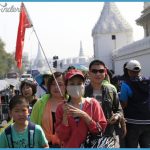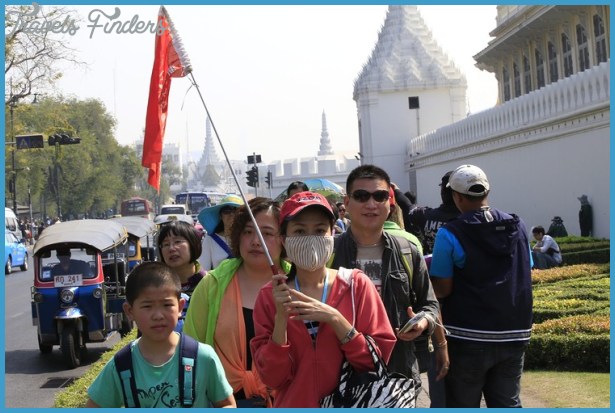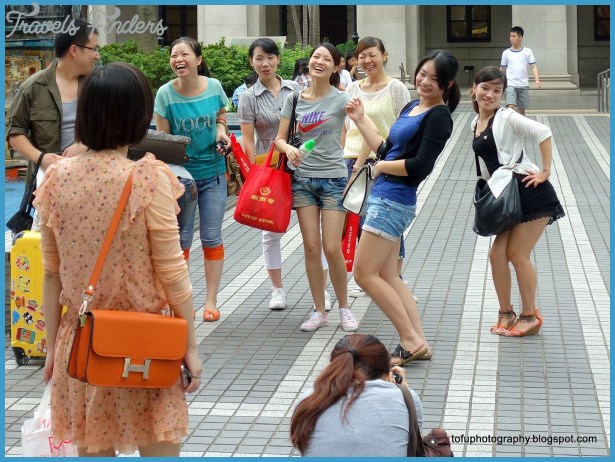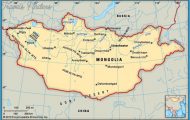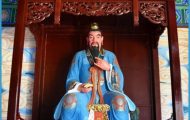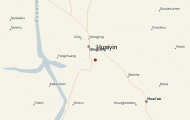Chinese poetry has developed and refined over the centuries. The first collection of poems entitled “Book of Songs” dates from the Zhou Dynasty and the period ofthe Warring Kingdoms (11th c-221 B.C.). These poems originated in the heart of the northern civilisation in the Huanghe valley. The “Chuzi”, another collection of songs, comes from the south of China.
The finest exponents of Chinese poetry are the two Tang poets Du Fu (see Famous People) and Li Bai (see Famous People). Du Fu was born in the beautiful and prosperous town of Chengdu in the southern Sichuan province. He was a stout defender of Confucian ideas and portrayed the suffering of the Chinese people and the severe landscapes ofthe west, where the population was dying in wars between the tribes (“Home is in ruins:/mountains and rivers remain and in the towns it is spring/trees and thick grass .. .”)
Unlike his contemporary Du Fu, Li Bai fell under the influence of Taoism and was captivated by nature, its rhythms, sounds and colours (“and it is as if I can hear the pine trees breathing from a thousand mouths,/and a river flows by and washes the sorrow from my heart”). In a state of drunken euphoria he finds himself at one with the natural flow of life, the Tao, intoxicated by wine, passion and vice (” is it not said that pure wine makes man wise/and cloudy wine releases man from his ignorance?”).
That poetry was a genuinely popular form of expression is clear from the large number of poems that were written by courtesans. For them, poetic talent was a way of winning a man’s admiration, of escaping from a lowly status, finding a husband or securing a position as a concubine. The Tang (618-907) courtesans Yu Xuanchi and Xue Tao who came from quite different social backgrounds write from the soul about their unhappiness, anxieties, the depth of their passion, their loneliness and their insecurity.
It was during the 14th c. when the Mongols ruled China that the written story started to replace the oral tradition. The two most important works of this period are “The Romance of the Three Kingdoms” by Luo Guanzhong, recounting the heroic deeds and adventures of many of the figures who lived during the “Three Kingdoms” period and the “Water Margin” or “The Robbers of Liangshan Moor” by Shi Naian
Li Bai receives his friends Idetail from a painting by Qiu Ying) (1368), a tale in the popular Taoist tradition where a band of robbers seek to defend such ideals as justice and liberation. On the other hand in “Record of a Journey West” or “Monkey” written in the 16th c. during the Ming period, Wu Cheng’en (1510-1580) describes how Buddhism influences the journey of one man and his companions. “The Plum Blossom in a Golden Vase” (1610) by Jing Ping Mei is a famous erotic novel which describes in a lively manner the society, culture and customs of the Song era (960-1279). The last great novel of the imperial years is called “Dream of the Red Chamber” (“Honglou Meng”) by Cao Xueqin (1715-63) who describes the decay of imperial society and the fragility of social relationships expressed through the feelings and hopes of an adolescent.
Modern literature includes those works which appeared between the Opium Wars and the May 4th Movement of 1919. They made a significant contribution to the development and strengthening of a political and social conscience. In the first few years of the 20th c. a literary revolution occurred – students, writers, poets and journalists declined to use the written language, replacing it in their books and articles with the widely understood language of common use (beihua). In this way they forced the government to extend the use of this language variation to every school in the land. Ofthe many personalities of that era, Lu Xun (1881-1936; see Famous People) stands out as the father of this literary revolution. A Marxist writer, he translated many Russian works and helped to popularise the 19th c. novel including Gogol and Dostoyevsky. Fie also wrote a number of socio-critical stories such as “A Madman’s Diary” (1918) and “The Story of Ah Q” (1921) both of which savagely denounced the deplorable state of Chinese society.

